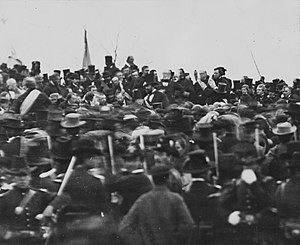As we commemorate the first Thanksgiving of 1621, we must remember the Pilgrims, their sacrifices, and their attitude of thanks towards God. Besides Thanksgiving, though, how significant are the Pilgrims to this country? Did the Pilgrims' principles influence our Constitution at all?
We all know the
founders of America .
As Americans, we all know and respect the men that founded our nation; men like
George Washington, Thomas Jefferson, Benjamin Franklin, and many others. We all
know the signers of the Declaration of Independence and the Constitution. These
were all great men who we all know about, but were there other founders of this
country? Where did the ideas for the Constitution come from? Thomas Jefferson
once admitted that the Declaration of Independence had no original ideas. The
founders didn’t come up with these ideas and principles by themselves. There
were other men who help pave the way for the Constitution to come forth, and I
believe that it’s only fair that these “other men” be considered founders of
this country as well.
On March 19, 1590 in Austerfield, Yorkshire ,
England
William Bradford
changed the world. If there was never a William Bradford, then there would’ve
never been a free America .
The most shocking part about this, though, is that religion was Bradford ’s
way of life. Why is this so shocking? Well, it’s like I said before: with no Bradford ,
we would have no freedom. If Bradford ’s way of life was
religion, then our freedom is based and founded on principles of Christianity
and religion.
 This is my
point: William Bradford and the Pilgrims came to
This is my
point: William Bradford and the Pilgrims came to
The Pilgrims
laid the foundation for this nation, our government, and ultimately the
Constitution. Even before the Constitution, the first major governing document
in the colonies was the Mayflower Compact. This document is only two paragraphs
long, and it mentions God five times and Christianity/faith twice. The reason
for the Mayflower Compact was religious freedom, because the Pilgrims didn’t
want another ruler to take their freedom to worship God away. In England ,
the Pilgrims were oppressed, and they came to America
to worship God. America
was founded on principles of faith.
Much later, as
the U.S. Constitution was being framed, the founders of our country structured
our government very similarly to the Pilgrim’s government. For example, the
Mayflower Compact says, “covenant and combine our selves together into a civil
body politic, for our better ordering and preservation”. This calls for unity
between people, just like the U.S. Constitution calls for unity between the
states. The Mayflower Compact also mentions, “by virtue hereof to enact,
constitute, and frame such just and equal laws, ordinances, acts, constitutions
and offices…for the general good of the Colony, unto which we promise all due
submission and obedience.” The Mayflower Compact, just like the U.S.
Constitution, called for equality, fair laws, and obedience to those laws.
Guess who was
the key figure in framing the Mayflower Compact? By writing this document,
William Bradford helped to pave the way for freedom and for the Constitution.
Why is freedom so important, though? You must remember that the reason for the
Pilgrims coming to America
was religious freedom. Without religious freedom, the Pilgrims would have no
reason to come to America .
Therefore, if the Constitution was framed like the Mayflower Compact, and the
Mayflower Compact was framed on principles of religious freedom, then the
reason for our nation today is God. That is why William Bradford was so
important to this nation. Without William Bradford, the reason for America
may not have been God, and if God hadn’t been the reason for America ,
then America
wouldn’t have had assistance from God, and therefore, it wouldn’t exist.
Without William Bradford, there would be no America .
That is why William Bradford was a founder and a hero.

